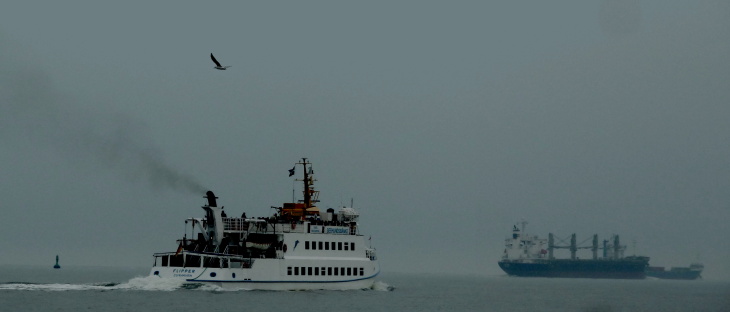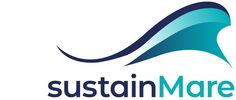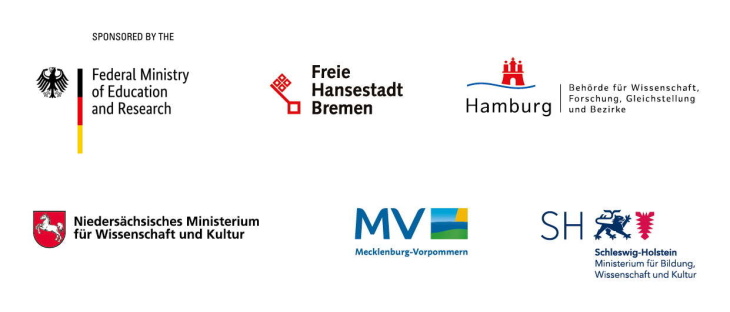Spokesperson (Contact)
Prof. Dr. Helmut Hillebrand,
Institute for Chemistry and Biology of the Marine Environment (ICBM),
University of Oldenburg
Activities
Every second thursday of the month:
Jour Fixe of all project members
Publication: „A Complete 60-Year Catalog of Wind Events in the German Bight (North Sea) Derived From ERA5 Reanalysis Data”: https://agupubs.onlinelibrary.wiley.com/doi/10.1029/2023EA003020
Publication: „On marine Real-World-Labs“: https://besjournals.onlinelibrary.wiley.com/doi/10.1002/pan3.10412
Publication: „Environmental changes affect the microbial release of hydrogen sulfide and methane from sediments at Boknis Eck (SW Baltic Sea)“: https://www.frontiersin.org/articles/10.3389/fmicb.2022.1096062/full
Project duration: 01.12.2021 - 30.11.2024
CREATE
Concepts for reducing the impact of anthropogenic pressures and uses on marine ecosystems and biodiversity

Climate change and the unsustainable use of coasts and seas not only affect the marine environment, but also human health and well-being, as humans and the sea form a socio-ecological system.
Multiple anthropogenic interventions in coastal marine ecosystems increasingly lead to conflicts of use that require trade-offs. In this context, cumulative stressors, which include nutrient and other inputs from agriculture, the expansion of renewable energies, the use of coastal waters for sediment dumping, shipping, pollution and tourism, must be taken into account, which often run counter to bindingly formulated marine nature conservation goals.
Accordingly, the CREATE project aims to develop solution-oriented action knowledge to reduce the cumulative impacts of multiple uses on biodiversity in three real-life laboratories involving a broad group of stakeholders. To this end, bio-geo-physical data and modelling will be provided to improve the assessment and management of coastal ecosystems through the reallabs.
The provision of social science analyses of formal and informal local governance structures and their embedding in national, European and international policies allows for the development of improved management methods to reduce the cumulative impacts of multiple uses.
WORK PACKAGES AND REAL WORLD LABS
In three work packages, CREATE will establish reallaboratories (RWLs) in the North Sea and the Baltic Sea in order to generate practically implementable innovations that counteract multiple stressors by applying transdisciplinary methods.
Work package 1 forms the basis of the project and includes stakeholder mapping, co-design of the real world labs and the development of operational management objectives and concepts to reduce cumulative impacts of multiple uses and climate change. Work packages 2 and 3 form the content pillars for generating recommendations for action in work package 1. In doing so, WP2 fills necessary gaps in the analysis of biodiversity and the physical environment of RWLs and their connectivity, while WP3 analyses existing governance structures in a multi-level approach and identifies reform needs. Accordingly, the project consortium consists of natural and social scientists, economists, engineers and societal stakeholders.
GOAL: CONCRETE RECOMMENDATIONS FOR ACTION
Through this multilateral approach, CREATE serves to generate concrete recommendations for action to achieve the formulated goals of marine nature conservation (including the European Marine Strategy Framework Directive [MSFD], Natura 2000, German Sustainability Strategy, National Biodiversity Strategy [NBS]). At the same time, we (train) capacities in interdisciplinary marine sciences essential for the MARE:N themes "Ecosystem Functioning and Biodiversity", "Sustainable Resource Use" and "Governance and Participation". CREATE will thus contribute to minimising negative impacts on coastal and marine ecosystems and thus make human-sea interactions more sustainable.
Project coordinator is Prof. Helmut Hillebrand from the Helmholtz Institute for Functional Marine Biodiversity at the University of Oldenburg [HIFMB] .



